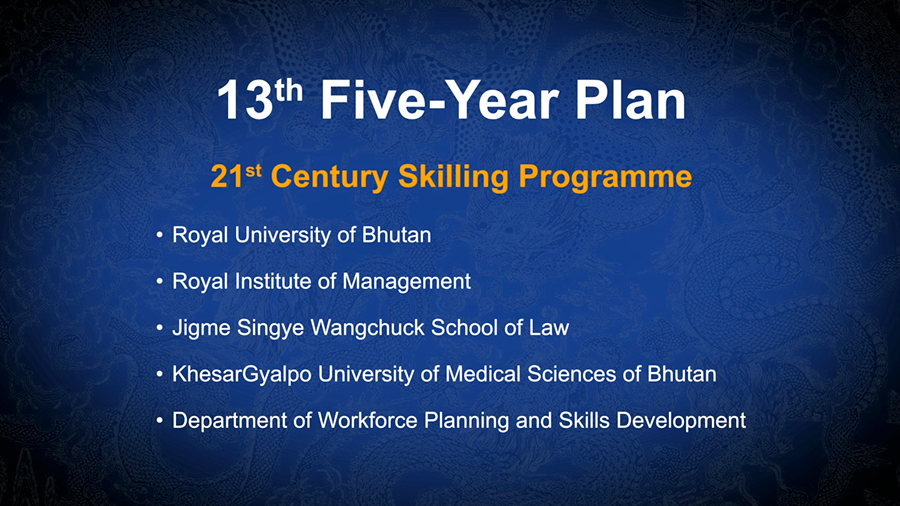
Over the next five years, more than 70,000 young people will enter the workforce from the education and training system. The 13th Five-Year Plan will invest Nu 10bn to equip the Bhutanese population with skills and knowledge needed for the 21st-century economy. By 2029, the plan aims to ensure that at least 50 per cent of the workforce has higher education or vocational skills.
According to the draft plan, investing in relevant knowledge and skills will support youth employment and help Bhutan achieve high-income status in the long term. The 21st-century skills programme will focus on transforming the technical and vocational education and training, TVET, system, improving the tertiary education system, and promoting a culture of lifelong learning.
The key agencies driving this programme are the Royal University of Bhutan, the Royal Institute of Management, Jigme Singye Wangchuck School of Law, Khesar Gyalpo University of Medical Sciences of Bhutan, and the Department of Workforce Planning and Skills Development.
In the next five years, over 18,000 university graduates, nearly 50,000 class 12 graduates, and about 3,500 diploma holders are expected to enter the job market.
The plan states that although the tertiary sector has undergone significant transformation, it still needs restructuring and programme diversification to match international quality standards.
The plan emphasises that tertiary education should include programs in manufacturing, energy and environment, agriculture, mining, construction, tourism, digital and creative industries, finance and banking, and social services such as health and education.
The 13th Five-Year Plan will see universities partnering with reputable international universities to offer joint programmes, elective courses with credit transfer, and access to online courses for personalised learning. The government will continue providing scholarships to top international universities in priority areas.
To transform the TVET system, the plan includes establishing state-of-the-art technology, enhancing faculty professional capabilities, and restructuring training programmes to meet market needs.
The government also plans to invest in short-term skills training to bridge the skills gap. The draft 13th Five-Year Plan will be discussed in both houses of Parliament before being endorsed in the current summer session.
Sherub Dorji







